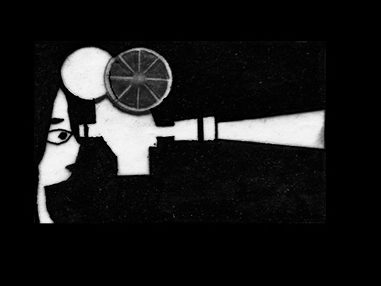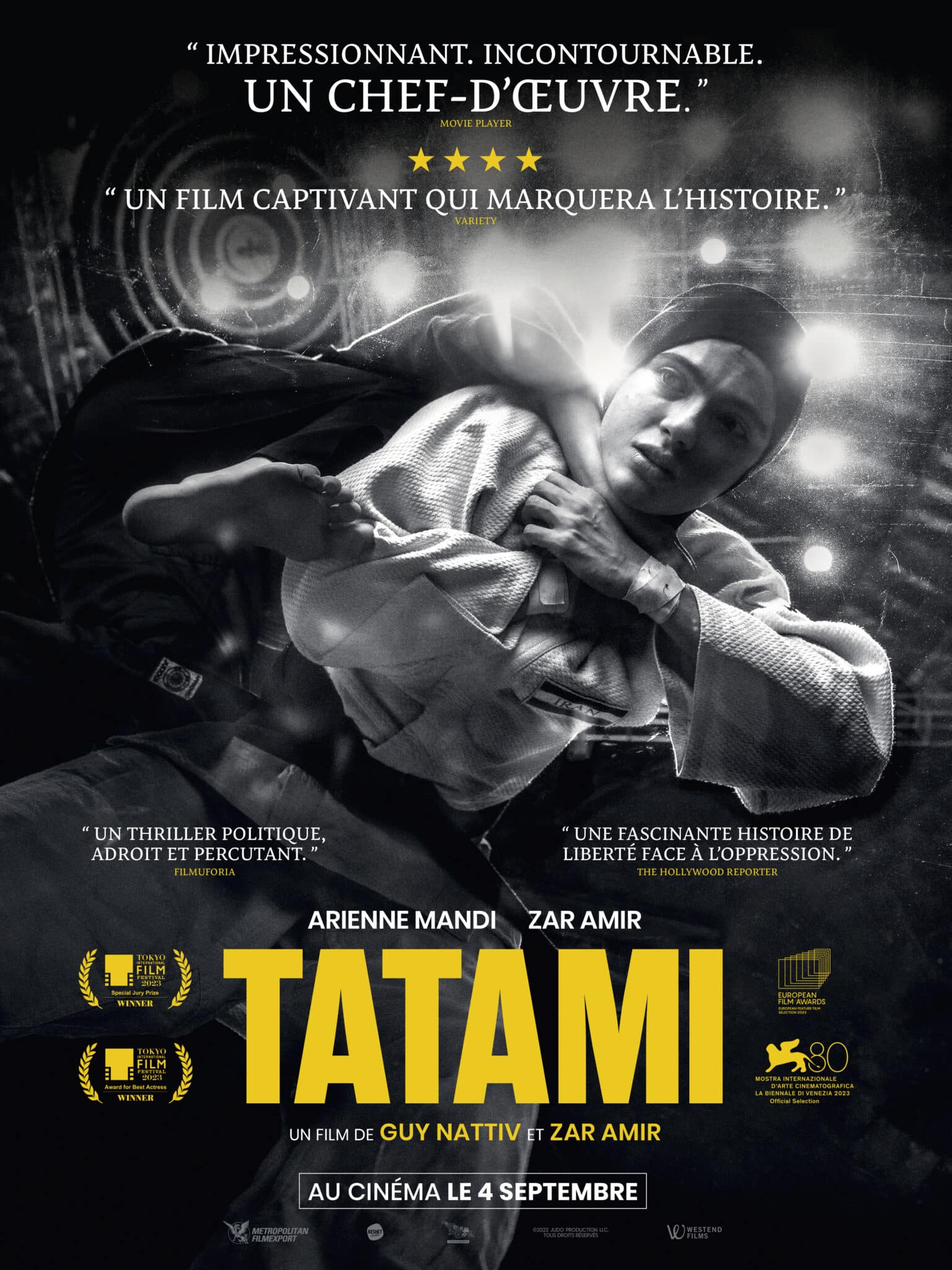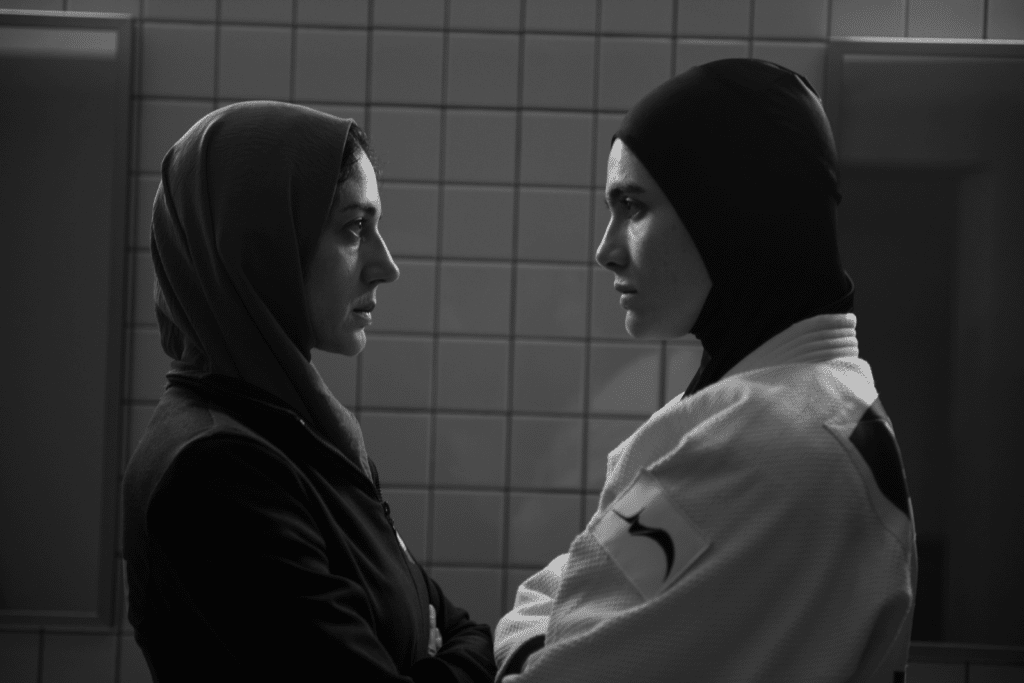“Tatami” by Guy Nattiv and Zar Amir Ebrahimi, in theaters from September 4th
Synopsis
In “Tatami”, Iranian judoka Leila (Arienne Mandi) and her coach Maryam (Zar Amir Ebrahimi) arrive at the World Judo Championships with the intent of bringing home Iran’s first gold medal. However, during the competition, they receive an ultimatum from the Islamic Republic, ordering Leila to fake an injury and withdraw to avoid a possible confrontation with the Israeli athlete.
With her freedom and her family’s safety on the line, Leila faces an impossible choice: comply with the Iranian regime as her coach implores or fight to achieve her dream.
Starring
Arienne Mandi (Leila Hosseini), Zar Amir Ebrahimi (Maryam Ghanbari), Jaime Ray Newman (Stacey Travis), Nadine Marshall (Jean Claire Abriel), Lir Katz (Shani Lavi), Ash Goldeh (Nader Hosseini), Valeriu Andriuta (Vlad), Mehdi Bajestani (Amar Hosseini), Farima Habashizadehasi (Justina), Elham Erfani (Assistant Coach).
When the mat becomes a political arena:
A historic collaboration between an Israeli filmmaker and an Iranian woman director
Tatami, the latest film co-directed by Guy Nattiv and Zar Amir Ebrahimi, is not merely a thriller sports drama; it’s a poignant exploration of the political tensions and moral dilemmas athletes face in oppressive regimes. Premiered at the 2023 Venice Film Festival, this film powerfully depicts the internal and external struggle of a woman determined not to be broken by the pressures of a totalitarian state.
A historic collaboration between Israel and Iran
The film is set during the World Judo Championships, where Leila, an Iranian judoka, is confronted with an unbearable ultimatum: withdraw from the competition or face an Israeli athlete, which is unacceptable to the Iranian regime. This dilemma lies at the heart of the film, illustrating how sports, often perceived as apolitical, can become a battlefield for human rights and freedom.
The tatami as a moral battlefield
What stands out in Tatami is the weight of the looks, the silences, and the palpable tension that grows as Leila progresses in the tournament. The black-and-white cinematography and the frame (4:3) perfectly captures this oppressive atmosphere, where every movement is an act of defiance. The contrast between the blows exchanged on the mat and the political pressures weighing on Leila creates a visual symphony of struggle and resistance.
A film resonating with the Olympic Games
The context of the 2024 Olympic Games, where an Algerian athlete refused to compete against an Israeli, directly echoes the plot of Tatami. This parallel shows how current and universal the stories told in the film are. The injustice faced by these athletes, forced to choose between their sporting ambitions and the safety of their families, is a silent tragedy that Tatami reveals with rare sensitivity.
Black and white: An aesthetic and symbolic choice
The film, shot in black and white, intensifies this atmosphere of struggle and resistance, transforming each judo scene into a metaphorical duel between freedom and oppression. Zar Amir Ebrahimi, who plays Maryam, Leila’s coach, added an extra layer to the film by rewriting her character to embody the generational conflict and regrets of those who succumbed to the regime’s pressure.
A symbolic distance
The filming of Tatami in Tbilisi, Georgia, in an underground area, far from the directors’ homelands, was not just a logistical choice but a deeply symbolic one. Zar Amir Ebrahimi, in her interview, highlighted the tension and careful planning that went into ensuring the safety and integrity of the production.
Filming in Georgia provided a neutral ground, away from the direct political pressures of both Israel and Iran, allowing the filmmakers to explore the story’s sensitive themes with a degree of freedom that would have been impossible in their respective countries.
This geographical distance, combined with the emotional and cultural connections both directors felt towards their homelands, reinforced the film’s themes of exile and the struggles faced by those who stand against oppressive regimes. The collaboration itself, between an Israeli and an Iranian, was a historic act of defiance, demonstrating that even in a world divided by politics, art can find common ground and speak to shared human experiences.
Tatami is not just a film; it is a mirror held up to today’s society, a brutal reminder that freedom is never guaranteed but must be wrested from those who seek to take it away. It is a necessary work that, through the lens of sports, challenges our own values and the price we are willing to pay to defend them.



